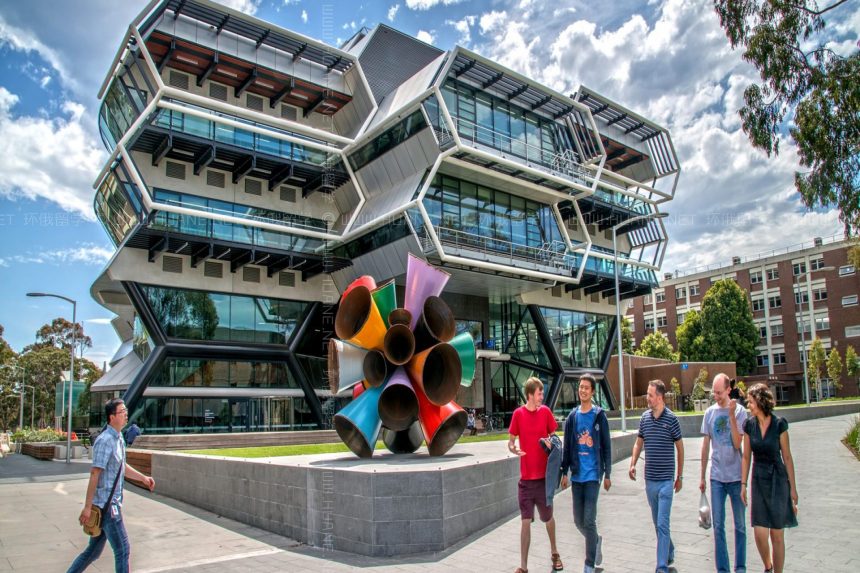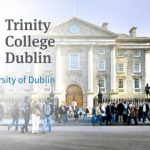I have studied in Melbourne for almost four years and at Monash University for two years. Today, I want to share what I have seen and heard while studying at Monash University. So, I will divide my feelings into English and study. First of all, let’s talk about Monash University and its highlights.
Monash University is one of the top 8 universities in Australia and one of the top 100 schools in the world, so its overall strength is outstanding. You can take a look at its ranking:

QS: 55th in the world
Times: 64th in the world
ARWU Shanghai Ranking: 85th in the world
Monash has a lot of majors; here are some recommended highlights.
Master’s Highlights in Monash University
International Development Practice
It is a biennial programme suitable for those who want to work in human rights advocacy, government assistance and non-government sectors, communication organisations, and international exchange organisations in the future. The programme also includes an exchange programme with opportunities for fieldwork in South Africa and Asia.
Teaching
The IELTS entry requirements are not low, two 7.5 and two 7. However, there are 10 to 20 weeks of language classes available. However, 10 to 20 weeks of language classes and early childhood and secondary education are available. Some kindergartens combine primary education. In addition, there is now a fast track one and a half years of secondary education, suitable for local Australian students who have studied undergraduate and are considering Teaching migrant students. In addition to the 8778 IELTS in Victoria, you can take an ISLPR test. Although the English requirement is also high, it is easier than IELTS. If you pass the ISLPR, you can at least get the qualification to teach in Victoria. Design: 2 years. Don’t have a portfolio, don’t have a relevant background.
Interpreting and Translation
It is the only one of the eight universities that doesn’t strictly specify the background of the translation and interpreting category. It is a 2-year master’s degree programme.
Engineering faculty Master
Although the programmes look rich, such as PM, infrastructure management, transport and traffic, etc., they can only be read locally. If you want to study similar programmes, you must study advanced engineering.
Data Science
compared to the other eight universities’ harsh entry requirements, this one’s requirements are relatively straightforward.
Financial Mathematics
Financial Mathematics is also a popular choice. You can consider it if you are good at maths and dislike that the Financial Mathematics intake in NSW is not much and less than two years. The average score of 211 is as long as 69, double non-80.
Juris Doctor
A year three intake, not to mention the tuition fee, is still cheap as long as the beginning of the 40,000.
Medicine
Compared to Engineering, the Faculty mouse does not have to slide two lines at the end of all the courses. In medicine, not only have you read but not read out of the professional, but there are those you can pronounce but do not know what the professional, of course, is also part of the professional not open to international students. Their OT majors (immigrants), relatively entry is also amiable, can also online make up prerequisite.
Pharmacy
Monash’s Pharmacy is powerful and is the leader in the industry.

Monash’s pharmacy is located on the Parkville campus, with an international-student ratio of 30%. The campus is close to the Melbourne CBD and bus station, and the school is monitored 24 hours a day for safety. Pharmaceuticals are often spoken of together. Still, in reality, they are two related and separate entities. Monash University’s undergraduate pharmacy – Bachelor of Pharmacy and Master of Pharmacy packaged down the course- is a five-year degree, in which the first four years of undergraduate study and the last year of the master’s is an internship. Of course, as such a strong pharmacy programme, the language requirement is also very high. The IELTS requirement for undergraduate admission is 7, with no less than 6.5 for each item.
Masters Selected Courses:

About English
English should be a significant concern for students going abroad. When you stay in a foreign country, whether studying or living, the content of listening, reading, writing, and speaking will be all in English at once. So there must be some difficulties. However, problems are inevitable, and finding a way to break through them is essential. Australian English is not American English or entirely British English because Australians have their unique accent.
The first thing I would suggest to you is to become a “talker”. I don’t mean that you have to become a chatterbox, but you have to create more opportunities for yourself to speak English and be bold. When you leave the plane, ask someone if you don’t understand something. If you don’t understand something, politely ask someone to repeat the answer. When you arrive at school, take the initiative to introduce yourself to the foreign students around you and make friends with them. And meet them in class to eat, play and study together. You can create opportunities to speak English to learn about the local culture as soon as possible and efficiently improve your English.
In short, when you come to an English-speaking country, you should go out more often, go to supermarkets, go shopping, go to restaurants, make friends, and not let go of any opportunity to speak English.
About Study
Compared with the domestic, the study atmosphere in Australia is more relaxed and free, without too many constraints. When I first came to Australia, From an agitated, fast-paced and stressful learning environment to a free and accessible learning environment, I suddenly became lazy, stayed in bed, didn’t take the initiative to study—and started to indulge myself. I quickly realised that I couldn’t continue in this state. So, I made changes, listened carefully to lectures, and took notes in class. I asked my classmates to study together in the library after class so as to enrich my life.
Monash Has a Highly Equipped Library

Speaking of libraries, Monash University’s library in Caulfield was rebuilt again two years ago. All the equipment inside was refurbished, and the books became more numerous. So, students must make good use of this resource!
Like me, now studying in Monash University’s media design programme, I often need to apply Adobe’s various software. This software generally needs a lot of money to install, but all the computers in the library have Adobe’s full range of applications! The library has hundreds of computers for students to use from the first to the fourth floor.

In addition to the library, hundreds of computers are in each teaching building, and they are all Apple’s highest configuration! And the internet speed is also breakneck. In addition to the computers in the library, all kinds of books are also very complete. Whether you are looking for information or reading some extracurricular books, there is no book you can’t find. And Monash student ID card to borrow books in the standard period does not cost a cent! It’s an excellent way for bookworms to spend their days in the library.
In addition to these, the library also has a small classroom for everyone to study. Group discussions or three or five students studying together can be booked before the small classroom. Because the classroom sound insulation effect is perfect, talking inside the debate will not affect others.
Is There No Pressure to Study?
Regarding pressure to study, it depends on what you are pursuing. Do you want to be a good student and try to get high grades, or do you want to get a diploma to study abroad? I am now studying communication design in my second year. For our major, the sum of the grades of all the assignments is a semester’s grade. Making a good design and getting a high grade is not easy. It has to go through constant refinement and revision and has nothing to do with continuous effort in and out of class.
What are the Classes like?

Classes at Monash are relatively relaxed and free. There are two types of classes: lecture and tutorial. A lecture is a lecture-style class with more than 100 people in a big classroom. So, if you have any questions or want to answer the professor’s questions, you can say so without having to raise your hand in advance and report to the professor. When I first came to Australia, I stood up once to answer a question, and then the professor looked at me stunned because they were more accessible to speak. It may be my first time seeing a student suddenly stand up to answer a question.
This kind of lecture generally allows the teacher to talk about the outline of the new class and introduce the content of each new class. Do not discuss too much detailed focus because a course is generally a section of the lecture, a tutorial.
The tutorial is a dozen people in a small class; the time is longer, and the content is also more detailed. The class can discuss various issues with the tutor; as long as a problem can be raised, you can also talk about their views at any time. The tutor will usually organise a group discussion and, after the debate, will allow everyone to speak out their discussion point of view.
FAQ
Melbourne Monash University offers a distinctive and enriching study abroad experience. Our commitment to research and innovation, coupled with our diverse student community, creates a dynamic learning environment that fosters creativity and critical thinking.
Our programs are designed with a global perspective, preparing students to excel in their chosen fields anywhere in the world. With strong industry connections and internships, you’ll graduate with practical experience, making you highly sought after by employers.
We prioritize the well-being and success of our international students. From pre-arrival guidance to ongoing academic and personal support, we ensure that your transition to life in Australia is smooth and enjoyable.
The University hosts a myriad of cultural events and societies where students can immerse themselves in diverse cultures. Additionally, Melbourne’s vibrant multicultural scene provides endless opportunities for exploration and cultural exchange.
We offer a range of accommodations to suit different needs and budgets, from on-campus halls to off-campus shared apartments. Our dedicated housing services team can assist you in finding the right place to call home.







